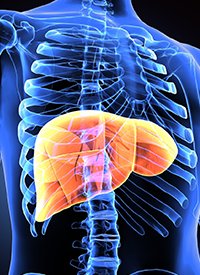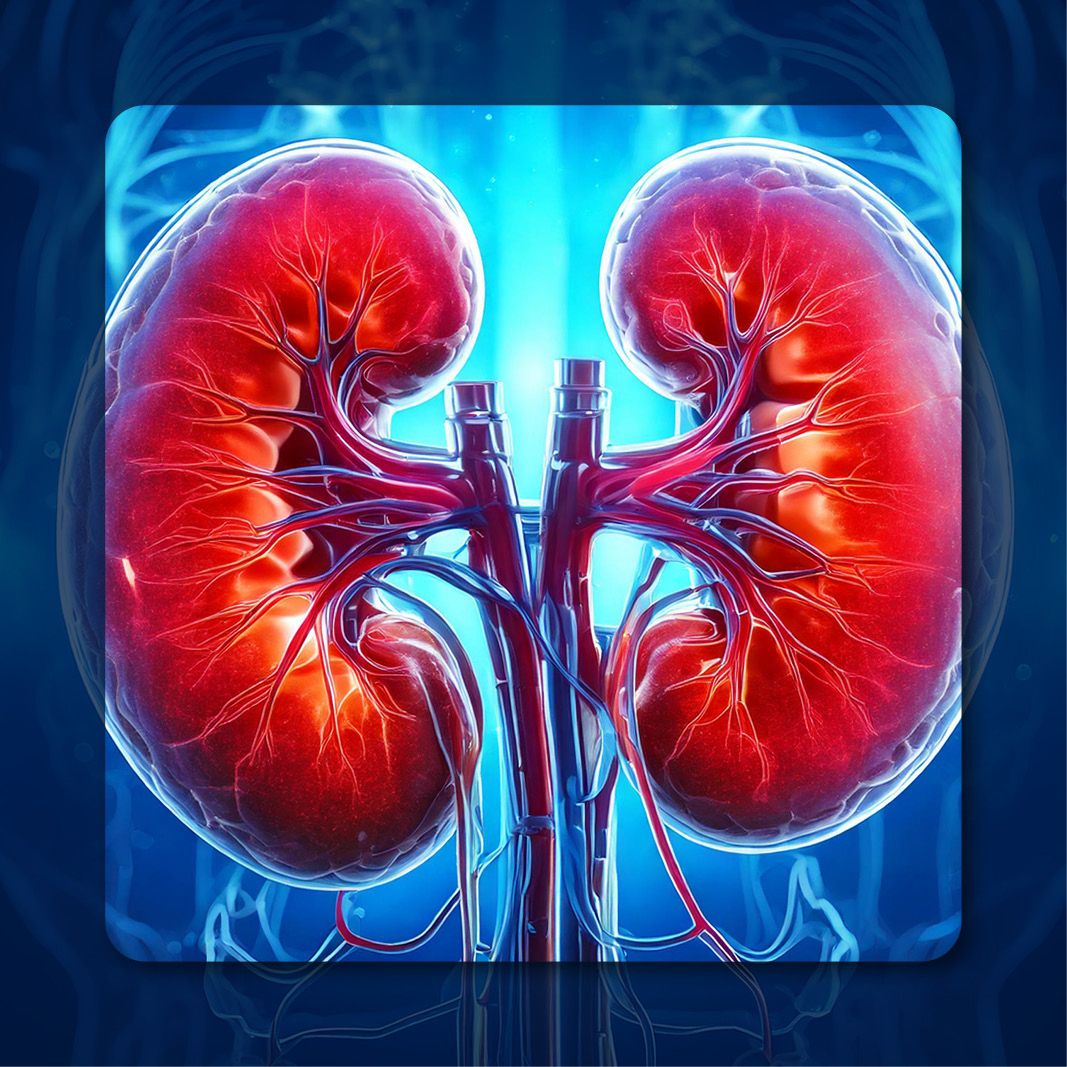Commentary
Article
Lung Responses to Atezolizumab/Bevacizumab Linked With OS in HCC and Pulmonary Metastasis
Author(s):
Early lung-specific response to atezolizumab plus bevacizumab was associated with longer overall survival in patients with hepatocellular carcinoma with pulmonary metastases.

Early lung-specific response to atezolizumab (Tecentriq) plus bevacizumab (Avastin) was associated with longer overall survival (OS) in patients with hepatocellular carcinoma (HCC) with pulmonary metastases, according to findings from a retrospective study that were presented at the 2023 International Liver Cancer Association Conference.1
In the entire study population, patients whose disease did not progress on the combination (n = 44) had better OS outcomes than those whose disease did progress (n = 15; P < .0001). Moreover, patients whose lung-specific disease did not progress on the combination (n = 42) had increased OS vs those whose lung-specific disease did progress (n = 17; P < .0001).
“Early phase of progression in lung metastasis was associated with OS in advanced HCC with pulmonary metastasis,” lead study author Ju Hyun Shim, MD, PhD, of the Department of Gastroenterology and the Liver Center at the Asan Medical Center at the University of Ulsan College of Medicine in Seoul, Republic of Korea, and colleagues, wrote in a poster presentation.
Atezolizumab plus bevacizumab has been established as the standard first-line systemic treatment for patients with advanced HCC based on findings from the phase 3 IMbrave150 trial (NCT03434379), which led to the 2020 FDA approval of this combination in patients with previously untreated unresectable or metastatic HCC.2 The heterogeneity of the solid tumor immune microenvironment influences the efficacy of immunotherapy and/or targeted therapies.1
Studies have demonstrated differential organ-specific responses to combinations of immune checkpoint inhibitors and TKIs in patients with advanced HCC. In particular, lung-specific responses were shown to be better than responses in other metastatic lesions. However, studies have yet to explore differential organ-specific responses and their association with OS in patients with advanced HCC who received atezolizumab plus bevacizumab in the first line.
The goal of this single-center, retrospective cohort study was to examine the survival effects of overall responses and lung-specific responses in patients with HCC and pulmonary metastases who received atezolizumab plus bevacizumab.
This study evaluated patients with lung metastases and preserved liver function who received at least three 3-weekly cycles of atezolizumab/bevacizumab. The response assessment was based on RECIST v1.1 criteria, where responders were defined as patients who achieved complete response (CR) or partial response (PR), and progressors were defined as those with progressive disease (PD) at initial evaluation after 1 treatment cycle.
The primary end point of this study was lung-specific response and its association with OS.
At baseline, the median age of patients in the entire lung cohort (n = 59) was 59.9 years (range, 51.7-67.5), and 76.3% of patients were male. Additionally, 74.6% had a hepatitis B infection, 56.0% were consuming alcohol, 32.2% had diabetes, and 37.3% had a family history of HCC. A total 98.3% had an ECOG performance status of 0 or 1, 13.6% had ascites, 93.2% had Child Pugh class A disease, 59.3% had alpha fetoprotein (AFP) levels of at least 200 ng/mL, and 51.0% had a neutrophil-to-lymphocyte ratio of at least 3, Most patients (84.7%) had intrahepatic metastases, 39.0% had concurrent other extrahepatic metastases, and 44.1% had macrovascular invasion. Furthermore, 49.2%, 15.3%, and 16.9% of patients had previously received treatment, surgery, and locoregional treatment plus surgery, respectively. The remaining 18.6% of patients had received no prior treatment.
In total, 11.9% of patients responded to atezolizumab plus bevacizumab, 1.7% of whom achieved a CR and 10.2% of whom achieved a PR. Additionally, 88.1% of patients did not respond, 62.7% of whom had stable disease (SD) and 25.4% of whom had PD.
Of the patients with lung metastases (n = 59), 15% responded to atezolizumab plus bevacizumab, 4% of whom achieved a CR and 14% of whom achieved a PR. Additionally, 82% of patients did not respond, with 50% and 32% having SD and PD, respectively. Among the patients in this population, there were 9 non-target lesions.
Among the patients with intrahepatic metastases (n = 50), 12% (n = 6) of patients responded to the doublet, 2% and 10% of whom achieved a CR and a PR, respectively. Additionally, 88% of patients did not respond, 68% of whom had SD and 20% of whom had PD. Of the patients with macrovascular invasion (n = 26), 19.2% responded to atezolizumab plus bevacizumab, 3.8% of whom achieved a CR and 15.4% of whom achieved a PR. Additionally, 80.8% of patients did not respond, 69.2% of whom had SD and 11.6% of whom had PD.
Several patient characteristics were determined to be independent factors for OS in a univariate analysis, including initial lung metastases that did not progress (HR, 29.5; 95% CI, 5.53-158; P < .001), intrahepatic metastases (HR, 3.36; 95% CI, 0.43-26.4; P = .2), macrovascular invasion (HR, 2.57; 95% CI, 0.81-8.20; P = .11), concurrent other extrahepatic metastases (HR, 0.97; 95% CI, 0.31-3.09; P > .9), age 60 years or older (HR, 1.15; 95% CI, 0.37-3.59; P = .8), male sex (HR, 0.23; 95% CI, 0.07-0.71; P = .01), non–hepatitis B virus etiology (HR, 0.47; 95% CI, 0.10-2.16; P = .3), diabetes (HR, 1.19; 95% CI, 0.36-3.97; P = .8), family history of HCC (HR, 0.89; 95% CI, 0.27-2.97; P = .9), Child Pugh class B (HR, 2.77; 95% CI, 0.33-23.4; P = .3), neutrophil-to-lymphocyte ratio of 3 or higher (HR, 2.88; 95% CI, 0.69-12.0; P = .15), and AFP levels of at least 200 ng/mL (HR, 1.67; 95% CI, 0.52-5.30; P = .4).
Additionally, a multivariate analysis showed initial lung metastases that did not progress and male sex were associated with better OS, with respective hazard ratios of 25.4 (95% CI, 4.38-148; P < .001) and 0.37 (95% CI, 0.11-1.24; P = .11).
“Pulmonary response to atezolizumab/bevacizumab could help clinicians decide whether to continue the drug or switch to second lines at an early phase of the initial therapy for [patients with] HCC with pulmonary metastasis,” the study authors concluded.
Disclosures: This study was supported by grants from the Basic Science Research Program through the National Research Foundation of Korea funded by the Ministry of Science and ICT and the Elimination of Cancer Project Fund from Asan Cancer Institute of Asan Medical Center.
References
- Shim JH, Yang J, Choi J, et al. Lung-specific response to atezolizumab plus bevacizumab is associated with overall survival in patients with lung metastasis from hepatocellular carcinoma. Presented at: 2023 International Liver Cancer Association Conference; September 7-9, 2023; Amsterdam, Netherlands. P-110.
- FDA approves Genentech’s Tecentriq in combination with Avastin for people with the most common form of liver cancer. News release. Genentech. Accessed September 20, 2023. https://www.gene.com/media/press-releases/14856/2020-05-29/fda-approves-genentechs-tecentriq-in-com


















%20(2)%201-Recovered-Recovered-Recovered-Recovered-Recovered-Recovered-Recovered-Recovered-Recovered-Recovered-Recovered-Recovered-Recovered-Recovered-Recovered-Recovered-Recovered.jpg?fit=crop&auto=format)
%20(2)%201-Recovered-Recovered-Recovered-Recovered-Recovered-Recovered-Recovered-Recovered-Recovered-Recovered-Recovered-Recovered-Recovered-Recovered-Recovered-Recovered-Recovered.jpg?fit=crop&auto=format)
